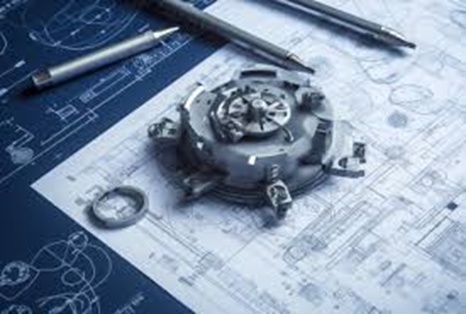
In the realm of industrial plant construction, precision is paramount. From intricate machinery to complex processes, every component must be meticulously designed and engineered to ensure optimal performance, safety, and efficiency. That’s where Detailed Engineering Services come into play, offering a comprehensive approach to translating concepts into concrete plans and laying the groundwork for successful project execution. Let’s delve into the world of Detailed Engineering Services for Industrial Plants and uncover why they are indispensable for project success.
Understanding Detailed Engineering Services
Detailed Engineering Services encompass the phase of a project where the conceptual design is transformed into detailed engineering drawings, specifications, and plans. This stage involves the nitty-gritty of design, addressing every aspect of the project, from equipment layout to piping and instrumentation diagrams (P&IDs), electrical systems, structural design, and more.
The Importance of Detailed Engineering
Detailed Engineering Services are critical for industrial plant projects due to the following reasons:
- Precision Planning: Detailed engineering ensures that every aspect of the project is meticulously planned and designed, minimizing errors, reducing rework, and optimizing project execution.
- Compliance and Safety: Detailed engineering ensures compliance with regulatory requirements and industry standards, prioritizing safety and mitigating risks throughout the project lifecycle.
- Optimized Performance: By fine-tuning design parameters and optimizing system configurations, detailed engineering services maximize plant performance, efficiency, and productivity.
- Cost Control: Detailed engineering helps in accurately estimating project costs, identifying potential cost-saving opportunities, and optimizing resource utilization, thereby minimizing budget overruns.
The Detailed Engineering Process
The detailed engineering process typically follows a structured approach that includes the following key stages:
- Design Basis Development: Define project objectives, specifications, and design criteria based on client requirements, industry standards, and regulatory guidelines.
- Preliminary Design: Develop conceptual layouts, schematics, and process flow diagrams to establish the overall plant configuration and system requirements.
- Detailed Design: Create detailed engineering drawings, equipment specifications, and technical documentation covering all aspects of the project, including mechanical, electrical, structural, and instrumentation design.
- Procurement Support: Assist in the procurement process by preparing bid packages, evaluating vendor proposals, and ensuring that purchased equipment and materials meet project requirements.
- Construction Support: Provide technical support during the construction phase, addressing design clarifications, resolving engineering issues, and ensuring compliance with design specifications.
- Commissioning and Startup: Support commissioning and startup activities by providing technical assistance, conducting system testing, and ensuring that the plant operates as designed.
Tools and Technologies
Detailed Engineering Services leverage a variety of tools and technologies to facilitate design and documentation, including:
- Computer-Aided Design (CAD): CAD software such as AutoCAD and SolidWorks is used to create detailed 2D and 3D models of equipment, piping, and structures.
- Engineering Simulation Software: Simulation tools like Aspen HYSYS and COMSOL Multiphysics enable engineers to model and analyze complex processes, optimize design parameters, and predict system performance.
- Building Information Modeling (BIM): BIM software allows for the creation of digital representations of the plant, integrating design data and facilitating collaboration among project stakeholders.
- Document Management Systems: Document management platforms like SharePoint and Documentum help organize, version control, and distribute engineering documents and drawings efficiently.
Real-World Examples
Many successful industrial plant projects have benefited from effective Detailed Engineering Services. For example:
- Chemical Plant Construction: A multinational chemical company utilized detailed engineering services to design and construct a new production facility, ensuring compliance with stringent safety and environmental regulations.
- Food Processing Plant Expansion: A food processing company relied on detailed engineering services to expand its existing plant, integrating new equipment and processes while minimizing production downtime.
- Power Generation Facility Retrofit: A utility company engaged detailed engineering services to retrofit its power generation facility, optimizing equipment layout and system configurations to improve efficiency and reliability.
Conclusion
Detailed Engineering Services are the backbone of industrial plant projects, providing the technical expertise and precision planning needed to bring projects from concept to reality. By investing in thorough design and engineering, industrial plant owners and developers can minimize risks, optimize performance, and achieve their project goals with confidence.
Ready to embark on your next industrial plant project? Contact us today to learn more about our Detailed Engineering Services and how we can help you turn your vision into reality.
